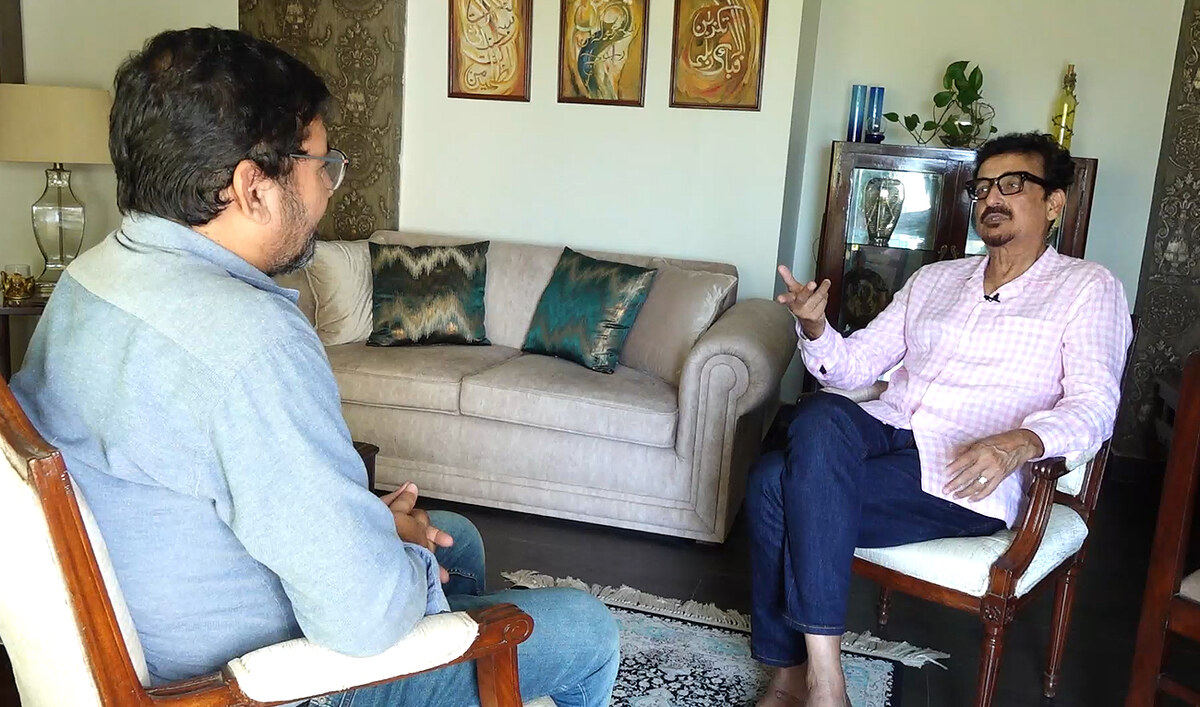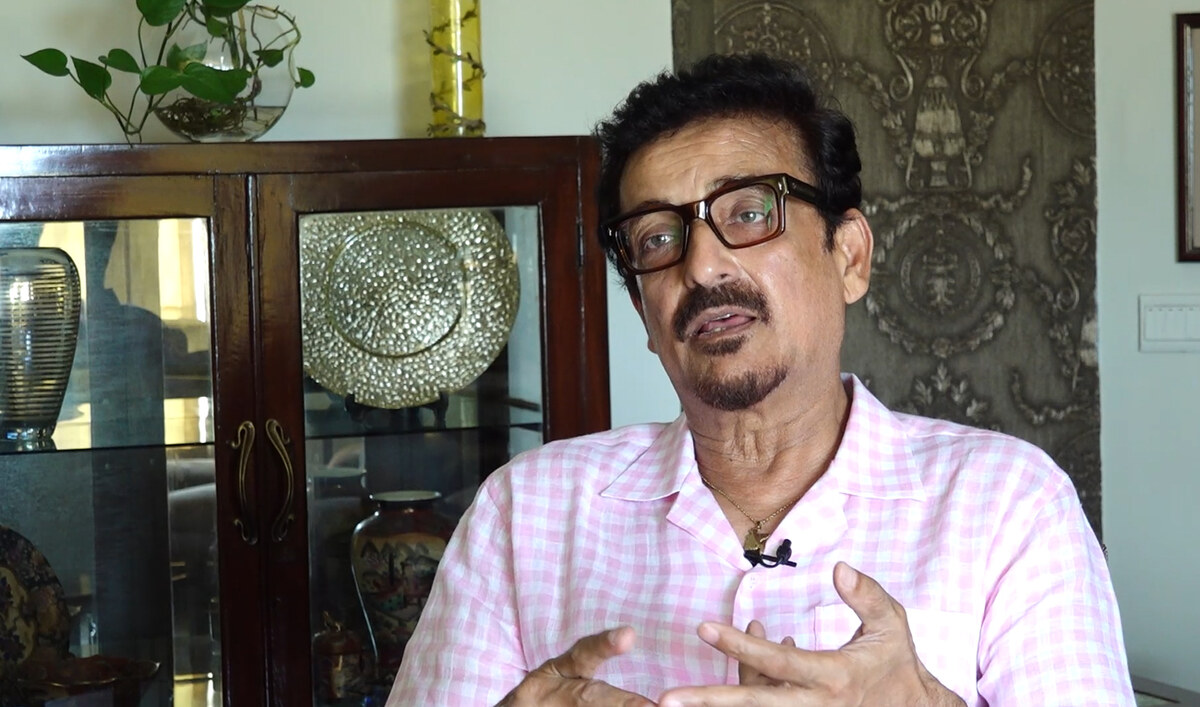KARACHI: Former Bangladeshi cricketer and current commentator Athar Ali Khan came to the defense of Pakistani batting sensation Babar Azam this week, saying he was going through a “bad patch” in his career but could bounce back with just one good innings as “class is permanent and form is temporary.”
Khan, who represented Bangladesh in 19 One-Day Internationals from 1988 to 1998, was in Pakistan to commentate on a two-Test series that started last month and which Bangladesh swept 2-0. He launched his commentary career around the time his nation gained Test status in 2000.
Out-of-form Babar Azam this week dropped out of the top 10 of the International Cricket Council’s ranking for Test batsmen after nearly five years and is now number 12 in the ranking. In the four innings across two Tests against Bangladesh, he scored 64 runs, leading to widespread criticism.
“Every player in their career goes up and down,” Khan told Arab News in an interview, referring to Azam’s recent performance against Bangladesh. “I mean, there are lean patches, purple patches when you’re scoring runs right, left and center. But there is a phase where there is a lean patch.

Bangladeshi commentator and former cricketer Athar Ali Khan (R) speaks during an interview with Arab News’ correspondent Naimat Khan in Karachi on September 4, 2024. (AN Photo)
“He’s a class act. It’s just one innings, which will give him enough confidence, but he’s too good a player to miss out for such a long time. [But] I always feel that class is permanent, form is temporary.”
Bangladesh swept the series with dominant performances in both matches. In the first Test, Mushfiqur Rahim’s superb 191 from 341 deliveries and Mehidy Hasan Miraz’s 4 wickets for 21 runs powered Bangladesh to a 10-wicket win.
The second Test saw another impressive display from the visiting team as Litton Das scored a brilliant 138 from 228 balls, while Miraz and Hasan Mahmud each claimed five wickets to secure a convincing 6-wicket victory, leading Bangladesh to a series win against Pakistan.
Khan said his team’s victory had opened a “glorious chapter” in Bangladeshi cricket history.
“It was the finest moment of Test cricket for Bangladesh,” he said. “In my opinion, it’s a Banglawash. It’s a word that I phrased a long time back when we went and won all the matches.”
Asked if Bangladesh’s historic victory was a result of Pakistan’s poor performance, which many attributed to lack of unity and poor selection, he said credit must be given to his national team.
“They played better cricket and were a better side,” he replied, adding that Pakistan had not expected Bangladesh to play such good cricket.

Bangladeshi commentator and former cricketer Athar Ali Khan speaks during an interview with Arab News in Karachi on September 4, 2024. (AN Photo)
“Pakistan did not do what they should have done, but they scored 448 in the first innings of the first Test match,” Khan pointed out. “They had Bangladesh 26 for 6 in the second Test match. They should have gone and won the match but then there was resistance, there was recovery. So, you have got to give more praise to Bangladesh, saying that you are a better team. You have got to accept the fact.”
The Bangladeshi cricketer-turned-commentator also questioned Pakistan’s decision to omit Mir Hamza from the first Test, despite his impressive record in first-class cricket.
“The surprising part for me to note was when Mir Hamza was picked in the second Test match, how come he was not picked up in the first and because he has 451 wickets in first-class cricket,” he said.
“INDIA WILL TAKE NOTE”
Bangladesh are now set to face a tough challenge as they are scheduled to tour India in September and October for two Test and three Twenty20 International matches.
“I think they [Bangladesh] are looking good, and they are looking threatening, and India will take note,” Khan said.
Acknowledging India to be among the finest sides in the cricketing world, he said Bangladesh’s opening batters should strive for better performance.
“I think one thing I would like to see from Bangladesh when they go to India is the top order because the top order has not really fired up for Bangladesh,” he said, adding that his team’s current advantage was the seam bowling attack.
“For the very first time, Bangladesh bowlers have taken all 10 wickets in a Test inning.” Khan said, “and also Hassan Mahmud picked up five for the very first time in Test cricket against Pakistan.”

















